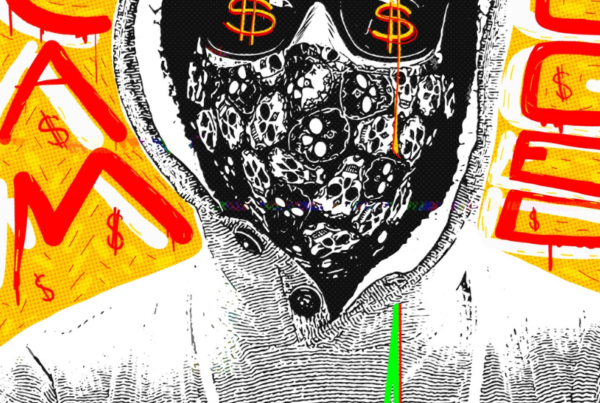Banking giant Wells Fargo – once considered the more Second Amendment-friendly of the major U.S. financial institutions – sent shock waves through the industry in January when it suddenly closed the personal and business accounts of Brandon Wexler, owner of Wex Gunworks in Florida – under the guise that the company had become “too risky.”
It is symbolic of the growing animosity toward the big banking industry towards the firearms arena. While increasing, the hostility is familiar.
Years ago, when many big banks began dropping gun-related clients, Wells Fargo remained firm that it would continue lending to firearms manufacturers – even defying pressure by gun control activists to cease doing business with U.S. gunmaker Ruger. And while other banking institutions issued statements against working with the firearms arena, Wells stayed quiet, even defending its long–standing – now diminished – lending relationship with the National Rifle Association (NRA).
However, in response to mounting demand last year, Wells Fargo announced it would invest more than $10 million to bolster nonpartisan research on gun violence prevention. This earned the ire of critics who claimed the bank was merely joining the ranks of many American financial institutions in steadily curtailing Second Amendment Rights.
Indeed, it was a long time ago that financial services companies served as neutral players in policy debates. Nevertheless, big banks began severing ties with gun makers and dealers dating back to the Obama-era Operation Chokepoint, where regulators propelled financial institutions not to do business with “high-risk” industries, including firearms and ammunition dealers.

Thus, regulators – rather than Congress – had the power to render it “unacceptable” to offer monetary services to businesses it deemed politically improper. Even after the confidential program was exposed in 2018 and eradicated by the Trump administration, Leviathans such as Bank of America and Citibank still implemented policies against working with companies that produce or sell certain guns or ammunition.
So, what happened?
Pro-gun control groups have poured millions into persuading financial institutions to cut ties with businesses they perceive as dangerous. Such activist entities have been widely successful in this endeavor, including targeting electronic payment giants. For one, PayPal took aim at gun makers and retailers as far back as 2011, with CEO Dan Schulman stating that: “if you’re going to have a consistent set of values that you stand up for, they have to be reflected in your acceptable-use policy. Companies, and by extension, their management teams and their CEOs, have a moral obligation to try to be a force for good.”
Besides PayPal, Square, Stripe, and Apple Pay also prohibit gun sales.
Last September, the International Organization for Standardization (ISO), responsible for setting the standards for payment transactions, took the fight one step further when it green-lit the development of a unique code – in the form of a four-digit pin – applicable to gun stores when processing credit or debit transactions. Visa, Mastercard and American Express would then adopt the code to help flag “suspicious” activity. Opponents have argued the code could end up erroneously blocking lawful purchases, unwarranted tracking of American citizens, and giving banks an unjust “moral authority” over personal, perfectly legal individual purchases.
According to financial risk analyst Dennis Santiago, this – combined with the influx of anti-gun policies in recent years – will “potentially make it more difficult for people to find and purchase firearms.”
“They can also make guns more expensive, as gun makers and dealers might not be able to get competitive rates on loans and more,” he surmises. “These impacts can be difficult to quantify for consumers, but they are real.”
But this doesn’t mean that Second Amendment-supporting Americans need to accept the status quo, and there is a growing debate in the blockchain community about whether it can be a viable solution to the problem.
As it stands, background checks – another point of controversy – are carried out by the National Instant Criminal Background Check System (NCIS), a centralized database. However, states often fail to provide the necessary and up-to-date criminal records, and the index is prone to human error, such as the mix-up of similar names. A growing sentiment is that blockchain technology could administer a decentralized and tamper-proof database containing buyer information and background.
In a similar vein to how crypto buyers store their digital money in wallets, trading back and forth can be verified and approved by blockchain. For example, buyers would be required to upload criminal and mental illness records for a background check for blockchain to approve the sale without being subject to government overreach. This can also alert those on the blockchain to the reselling of stolen weapons and make the reporting of stolen firearms much quicker and more efficient.
The gun market is slowly welcoming crypto, largely due to being frozen out of the mainstream arena. This could eventually mean the suspension of gun-control outfits’ capacity to wield financial bodies to back out of dealings, despite the industry’s legality.
However, there is still a long way to go in ensuring the system is set up right, and there will be no doubt legal hurdles to overcome. But like anything in the Blockchain space, out-of-the-box thinkers are working on it – thinkers that still adhere to an individual’s right to freedom.











